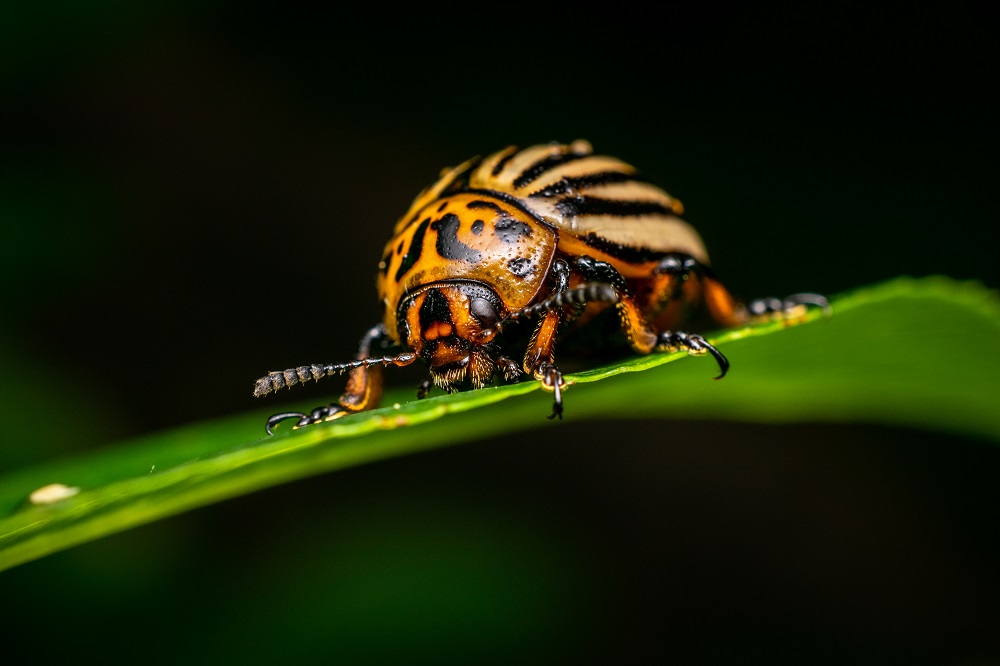GreenLight Biosciences got the “thumbs up” from the Environmental Protection Agency (EPA) for its breakthrough gene-edited biopesticide Calantha. The unique insecticide targets the Colorado potato beetle (CPB) while leaving bees and other insects unharmed.
The CPB’s rapid evolution has made it resistant to more than 50 different pesticides. The insect feeds on plant foliage and has been wreaking havoc on potatoes, tomatoes, and eggplants in the U.S. and globally. If left untreated, plants tattacked by this pest – especially in the flowering period – could fail to produce crops. This results in farmers losing almost $500 million in bad or low-yield crops.
Luckily, Calantha could be coming to the market soon.
What makes Calantha different?
The active ingredient in the biopesticide Calantha is ledprona. It’s a double-stranded ribonucleic acid (dsRNA) that creates RNA interference (RNAi) – a mechanism that naturally occurs within plants and animals to protect themselves against disease.
Calantha degrades in three days and leaves no harmful residue on plants or in the environment, explains the Biotechnology Innovation Organization (BIO) member company.
“Consumption of the dsRNA by the Colorado potato beetle – and only the beetle – causes it to stop eating and die from its own toxins,” says GreenLight Bioscience’s press release.
According to EPA, this biopesticide works by “silencing” a gene in the beetle responsible for the PSMB5 protein production which keeps the beetle alive.
A biobased alternative
Chemical-based pesticides have long helped agriculture with pest control.
However, traditional pesticides can have negative effects on the environment. Their use can decrease biodiversity in the soil and contaminate water and vegetation. They can also be toxic to other beneficial organisms such as pollinators (bees, butterflies), as well as birds and fish.
Additionally, pesticides can cause dermatological, gastrointestinal, neurological, carcinogenic, respiratory, reproductive, and endocrine issues, according to NIH.
GreenLight’s insecticide was tested extensively by international experts, who concluded the product is safe for humans and the environment. GreenLight’s tests find it does not harm honeybees, butterflies, other insects, or mammals—even at 100 times the recommended dosage.
“This is a new day for farmers seeking to balance pest management with biodiversity protection and environmental health. Calantha embodies the promise of such a future, along with the dozens of other innovations in our product pipeline. We are thrilled to witness the impending impact of this commercial chapter of our company in creating a more sustainable future,” said CEO Andrey Zarur.
GreenLight is hoping to make Calantha with ledprona commercially available before the next growing season.




